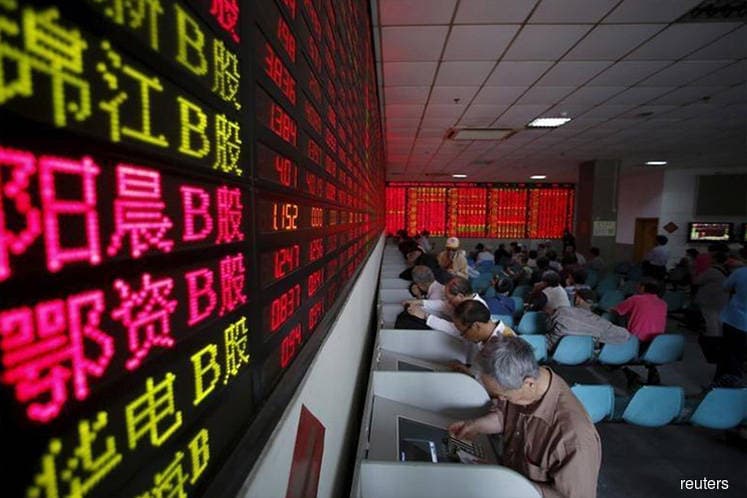
This article first appeared in The Edge Financial Daily on January 31, 2020
KUALA LUMPUR: Asian stock markets were succumbed to another round of selldown amid mounting concern over the economic impact of the outbreak of the Wuhan virus.
Taiwan, which resumed trading yesterday after the long Lunar New Year break, was the worst performing market. The Taiwan Stock Exchange Weighted Index tumbled 5.75% — the biggest fall since October 2018.
The two stock exchanges are still closed for the new year break. The bourses will reopen on Feb 3.
Hong Kong Hang Seng Index skidded for a second straight session yesterday, as the number of confirmed cases of the Wuhan virus in the city rose to 10.
The Hang Seng Index fell 2.62% to 26,449.13 points while Japan’s Nikkei 225 shed 1.72% at 22,977.75. Meanwhile, the South Korea Kospi Index dipped 37.28 points, or 1.71%, at 2,148.00, its lowest close since Dec 12.
Selling in Asean was not as bad judging by the indices performance.
On Bursa Malaysia, the FBM KLCI dropped 4.88 points or 0.31% at 1,545.59, marking the benchmark index’s eighth daily loss. The broader market was also generally in the red save for the consumer products, real-estate investment trust and transportation and logistics indices.
Across the causeway, Singapore’s Straits Times Index was down by 0.37%, while Jakarta’s Composite Index by 0.91%.
Reuters reported that China’s death toll from the Wuhan virus outbreak rose by 38 to 170 as of late Wednesday and the number of infected patients increased by more than 1,700 to 7,711.
If the Wuhan virus emergency peaks quickly, then the equity markets would be back to normal just as fast said Oanda Asia Pacific senior market analyst Jeffrey Halley in an email.
But if the Wuhan virus emergency stretches into months and starts to impact economic growth severely, Halley assured that central banks will impose monetary policy measures to stabilise the markets.
“Fortunately for the world, the US and China’s central banks are well placed to do just that, as opposed to Europe and Japan, for example. With over US$13 trillion (RM53.17 trillion) of government debt around the world in negative yields, a 1% yield on an equity blue chip will continue to appeal. The US Federal Reserve and PBoC (People’s Bank of China) will once again, put off the day of reckoning,” he explained.
In the same vein, EquitiesTracker Holdings Bhd head of research Lim Tze Cheng said the Wuhan virus outbreak may not be as bad as the severe acute respiratory syndrome outbreak in 2003, as he was assured by the swift actions taken by the Chinese government.
“The main concern right now is how serious is this outbreak going to be. My take is that the Chinese government has been doing the right things to contain the virus with fast and swift actions.
“We can see that there has been concrete efforts to mitigate the issue. I don’t foresee this to be a global pandemic issue,” he told The Edge Financial Daily.
Lim added that the markets might be calmer once the infection rate of the virus is beginning to slow down and/or a cure is found.
However, Oanda’s Halley pointed out that Asian equity markets remain acutely vulnerable to any adverse developments in the Wuhan virus outbreak. He warned that any rebound in equity markets could just “dead cat bounces”.